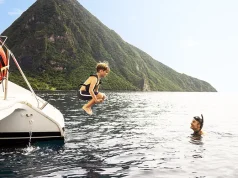
If you are planning to go on a hiking trip this year, it’s important to go out fully equipped regardless of the terrain and weather that await you. The right tools make all the difference in making the experience fulfilling and safe. It’s important that you shop for equipment that won’t fail you throughout the trip. Use the guide below and make better decisions when picking hiking gear:
1. Backpack
Investing in a high-quality backpack is important if you are traversing rugged terrain. You also need to pick one that can withstand any climate and provide ample protection and space for everything else. One thing’s for sure, you may need to purchase a backpack made from waterproof material such as nylon or polyester. It should also feature EVA foam. This durable padding offers optimal shock absorption and resistance to moisture and chemical damage. You may have to pay above average for a backpack that’s durable, easy to use, and long-lasting, but it’s still a worthy investment if you are planning more hikes.
2. Water Container
Dehydration is something you need to avoid at all times during a hike. For this reason, you will need to look for a water bottle with enough capacity to last the entire trek. As a rule, look for a container that can hold up to 1.2 liters. The container should be compact so it won’t take up too much space in your backpack. Keep in mind that narrower bottles carry less water than wider containers, so opt for a balance between portability and capacity. Insulation is also important in case you are hiking under extreme conditions. For a winter hike, opt for a container that can hold hot liquids for a maximum of 12 hours. Under hotter conditions, a quality water bottle should keep cold water at the same temperature for at least 24 hours.
3. Survival Tools
Having the right tools can help you get out of a dangerous situation, so make sure your hiking kit has them. These items may include waterproof matches, a Swiss army knife, a compass, ropes, and trekking poles in case you are climbing steep trails. You also need to throw in an emergency kit that includes gauzes, bandages, a bottle of antibiotic solution, and medication for allergies, accidental poisoning, nausea, and other conditions. If you are going to camp out overnight, be sure to bring flashlights, cooking utensils, and extra food.
4. Clothing
When it comes to choosing what to wear for a hike, consider the season and the condition of the terrain. During the summer, you can wear less to allow for greater flexibility. However, this gives you less protection against insects, poison ivy, and other hazards. Under winter conditions, you may want to wear several insulated layers made from wool. You may also need to wear an outer jacket that can withstand moisture and high winds. It’s also important to consider tactical functionality in case you are hiking during hunting season. Check out sellers like Kryptek which offers military-inspired apparel that can improve your performance throughout the hike.
5. Footwear
Much like picking the right clothes to wear, you should also pick shoes or boots based on the season. In addition to that, you need to take the difficulty of the trail into account. During dry weather, it would be better to wear durable sandals with soles that provide maximum grip on slippery surfaces. You may want to wear socks if you don’t want to expose your feet to the elements. On the other hand, optimum insulation is crucial if you are planning a hike during the winter, so look for hiking boots that provide extra comfort, mobility, and protection against frostbite. Pair these with insulated socks made from a balanced mix of synthetic material and natural wool or cotton.
6. Camping Tent
If the hike takes overnight to complete, you need to shop around for a camping kit that’s easy to carry and set up. You have options for ultra-lightweight tents made from durable waterproof material. Interior capacity is also an important factor to consider. If you are hiking alone, you can choose a single-person tent or, in case you want more space for extra comfort, a two-person tent. Whichever the case, you shouldn’t settle for budget camping kits that may not provide ample protection from heat, cold, insects, and other hazards. If you can, invest in a tent that does more than providing you with a cozy place to sleep in. Your safety will depend on the quality you pay for.
Hiking can be an exciting endeavor as long as you are prepared for it. Check the list above and stock up on the essentials before the trip.





